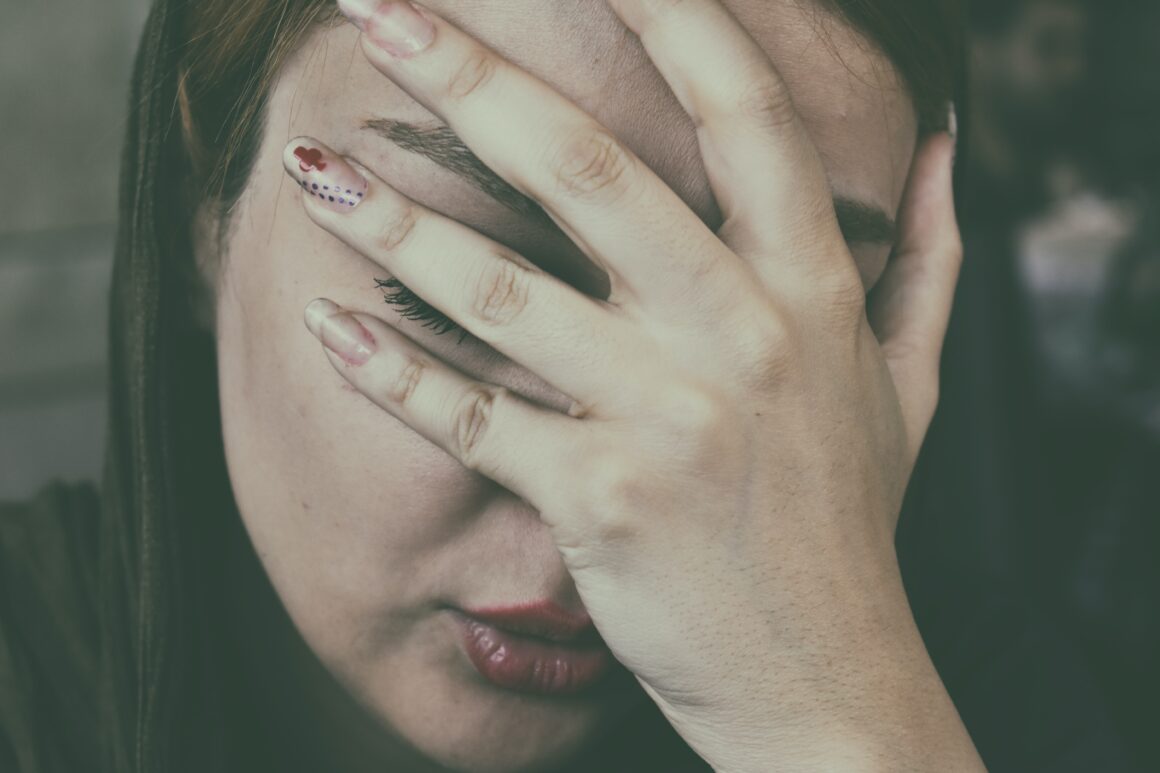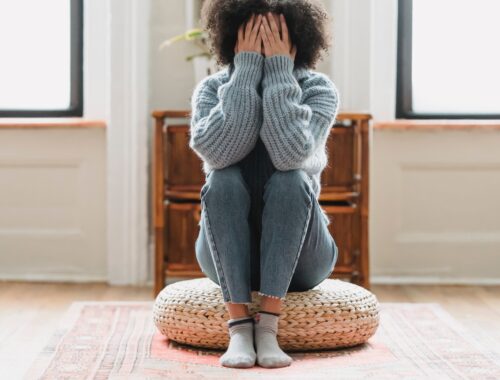
Good and bad days with chronic illness
The difference between good and bad days with chronic illness can be almost unrecognisable, and yet most people only see us on good days. So lets chat about it.

Image Description: A close up of a woman’s face, she has long black hair and her hand is covering her face.
I think most people know someone with chronic illnesses, whether we realise it or not, it could be a family member or that quiet woman at work. Many people who struggle with them try their best to not be a burden, myself included.
Being a carer for my disabled mom, I rarely ask for help unless it is from my husband who is wonderful at looking after us both. And because family do not see me on a bad day, they do not offer to help or pop in to see if we need anything.
It is important though, to remember that there is a big difference between someone on a good day and a bad day. I try to show this on my Instagram, but it can be hard for people to really understand when my bad days are usually spent in bed.
A good day looks like:
- Able to get out of bed without too much trouble
- Manage to go out to the shops or somewhere nice
- Showering with stool is not painful or very tiring
- Capable of a few small jobs without flaring pain or fatigue
- No need of a nap
- Go to bed after some gentle exercise from my accessible exercise playlist
A bad day looks like:
- Unable to get out of bed without help from husband
- Spend most of the day in bed sleeping or at least dozing
- High brain fog unable to think straight or speak easily
- Lots of pain so extra meds needed
- Possible migraine
- Maybe able to get up mid afternoon to sit or lay on the sofa
- Can possibly take a bath in the evening to ease pain and aid sleep
As you can see, these days are very different, and make being a carer difficult as I tend to have at least one bad day a week. If mom is in bed, I still need to help her get up and get back into bed at night at the least.
There is nobody to call for carers who are dealing with their own health issues, no carers who can come on the day as needed. I still have to make sure she is looked after and though she comes from a big family, I don’t feel as if I can call on anyone. It isn’t that they do not care, more that they see me only on good days where I have rested and planned for them coming.
People who need to, or decide to continue to work with chronic illnesses often have a harder time managing their symptoms. They might seem fine at work, but probably hide their symptoms and are more likely to be unable to do anything other than work. So, next time instead of moaning about someone with illnesses, why not be kind and offer to help?
Now, I have listed my symptoms on the extremes of my illnesses so far, so I thought I would quickly explain the every day:
Most days look like:
- Need to watch a half hour video in bed to wake up properly
- Very foggy in the morning need to rest on sofa for an hour or so to wake up fully
- Able to stand to make drinks but need to sit to make food or cook
- Often I have a mild headache
- Can shower with shower stool to save energy
- Possible to do three tasks throughout the day
- By evening very tired and needs to rest on sofa and watch TV
- Could maybe make dinner if aided by carer (husband)
- Bed early 8pm-ish after gentle exercise like bed yoga
As you can see by this, my general everyday is not easy, and yet you might see me and assume I am doing well or not sick. This is because we are often not seen unless we are having a good day, especially those of us with ‘invisible illnesses’.
The difference between good and bad days with chronic illness can be shockingly varied and our symptoms can flare at any time. We can often feel isolated and unable to ask for help as most people do not understand what it is like to feel ill every day.
Our illnesses do not get better and there is usually not cure only symptom management available, yet society expects us to carry on and fake being well. No matter if it is a good or bad days with chronic illness, our lives can be difficult to manage so please offer help if you can.
Thank you xx





One Comment
Kaz
As someone with hidden disabilities, thank you.